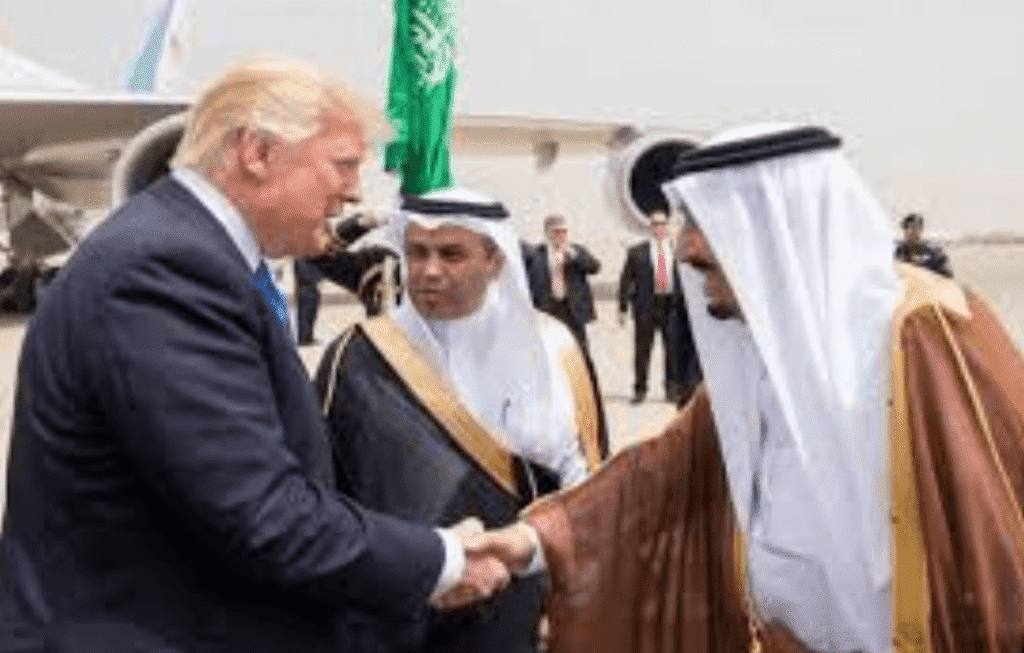RIYADH: U.S. President Donald Trump arrived in Saudi Arabia on Tuesday, launching a high-stakes tour of the Gulf region that will include visits to Qatar and the United Arab Emirates. This marks Trump’s first major international trip of his second term, signaling the continued importance of Gulf partners in U.S. foreign policy and business strategy.
The White House described the visit as a “historic return” to the region, recalling Trump’s first overseas trip in 2017, also to Saudi Arabia, where he famously posed with a glowing orb and took part in a traditional sword dance.
This renewed focus on the Gulf—rather than Western allies—reflects the growing strategic and economic clout of the region. In the lead-up to the trip, the U.S. administration played a central role in brokering a ceasefire between India and Pakistan and advancing nuclear negotiations with Iran, underscoring Trump’s broader diplomatic agenda.
However, the dominant theme of this tour is business. White House sources say Trump is looking to finalize major trade and defense agreements. “The president will focus on ‘deals’,” noted Daniel B. Shapiro of the Atlantic Council, highlighting Trump’s transactional approach to diplomacy.
White House Press Secretary Karoline Leavitt said Trump will promote a regional vision that replaces extremism with economic and cultural cooperation. “Commerce and cultural exchanges will be at the heart of this tour,” she added.
Saudi Arabia’s Crown Prince Mohammed bin Salman has already pledged to channel $600 billion into U.S. investments and trade. Trump, ever the dealmaker, responded by pushing for even more. “I’ll ask the crown prince to bring it closer to one trillion. I think they’ll do it—they know we’ve been very good to them,” he said.
Riyadh is also expected to seek high-end military technology, including U.S. F-35 fighter jets and cutting-edge air defense systems. A senior Saudi official linked to the defense ministry confirmed that the kingdom wants delivery guarantees while Trump is still in office.
Reactions within Saudi Arabia have been mixed. While some welcome the potential for stronger economic ties and regional influence, others remain cautious about the political implications. “This visit could bring decisions that affect the entire region,” said Khalifa Oneizi, a Riyadh resident.
As Trump continues his Gulf tour, all eyes will be on the agreements that emerge—and whether they signal a deeper shift in the region’s role in global diplomacy and commerce.
